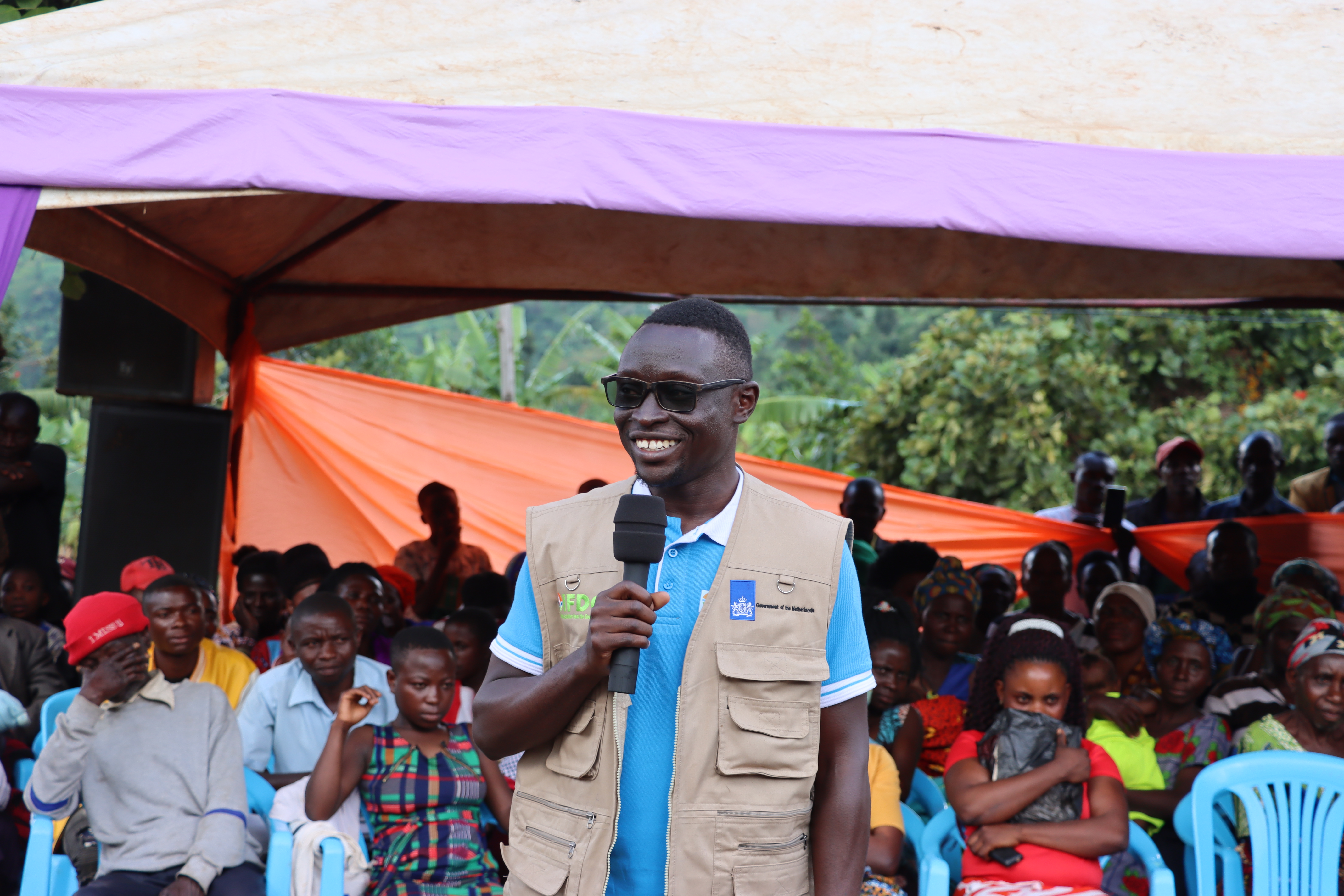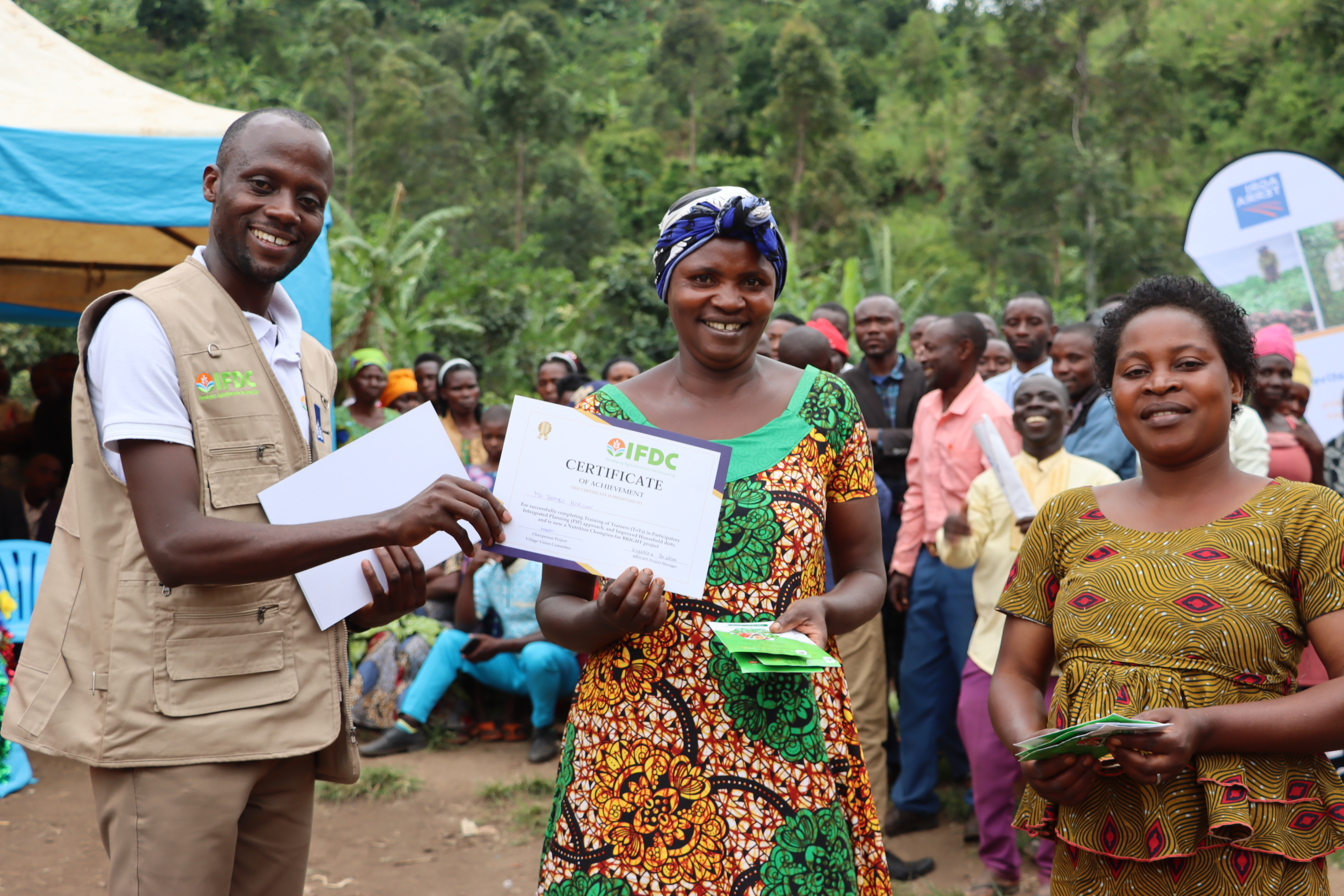
Through its Vision 2040, Uganda aspires to transition from a predominantly low-income country to a competitive upper-middle-income nation. Since agriculture is one of Uganda’s primary revenue sources, the country prioritizes development in the agriculture sector, which largely comprises smallholder farmers engaged in food and cash crop farming, forestry, horticulture, fishing, and livestock rearing.
To accelerate Vision 2040’s economic impact, the Government of Uganda collaborates with development partners across both public and private sectors. These partnerships focus on shifting agriculture from subsistence farming to a more commercial model while also fostering value addition through agro-processing.
International Fertilizer Development Center (IFDC) is a partner of the Government of Uganda in this initiative and a major actor in the country’s efforts. Through its Building Resilience and Inclusive Growth of Highland farming systems for rural Transformation (BRIGHT) project, IFDC is making significant strides in enhancing food access, agro-commercialization, and nutrition among smallholder farmers in Uganda.
The BRIGHT project has empowered us – the local farmers – with knowledge and skills…As a result, we are sustainably cultivating both cash and food crops, such as coffee, cassava, beans, and vegetables, which not only boost our household income but also enhance our families’ nutrition.
Since its inception in 2022, the BRIGHT project has worked to empower 106,560 smallholder farmers across Uganda’s Rwenzori, Kigezi, and Mount Elgon regions by building their capacity in improved climate-smart agro-practices and technologies, as well as agribusiness planning and analysis. BRIGHT provides smallholder farmers access to high-yield, climate-resilient crop varieties and essential farming technologies, significantly improving productivity.
In addition to technical support, BRIGHT ensures that farmers have access to reliable markets, enabling them to sustainably increase their incomes. Through improved land use planning, the project enhances agricultural efficiency, boosting household incomes, food security, and nutrition.
The BRIGHT project also promotes participation in village savings and loan associations (VSLAs), giving farmers access to essential financial services and credit. This financial inclusion enables farmers to sustainably invest in improved agricultural inputs and technologies and scale up operations. Moreover, these collective financial structures foster stronger social cohesion and resilience within farming communities.
BRIGHT celebrated an inspiring milestone on May 15 with the graduation and certification of 225 Farmer Innovators and Nutrition Champions in Kasese District. These farmers successfully completed an intensive training of trainers program focused on specialized agricultural skills and integrated farm planning at both household and community levels. Now equipped with this knowledge, these farmers are training and supporting fellow farmers, fostering a culture of stewardship, information sharing, and self-monitoring, all of which contribute to sustainable agricultural growth and resilience within their communities.

Speaking at the graduation event, BRIGHT Nutrition Field Officer Brian Bossa emphasized the project’s success: “Our pride at IFDC and at BRIGHT is to see smallholder farmers in the Rwenzori, Kigezi, and Mount Elgon regions conserve the environment and maximize the productivity and profitability of their farms.”
Bossa encouraged the newly trained farmers, “Apply your farm plans and put into practice the improved agricultural skills you have acquired. Just as importantly, share these skills with others in your community to ensure that no one is left behind.”
Joknas Bagheni, a Farmer Innovator and representative of Mukumba Village, recognized BRIGHT’s positive impact: “The BRIGHT project has empowered us – the local farmers – with knowledge and skills… As a result, we are sustainably cultivating both cash and food crops, such as coffee, cassava, beans, and vegetables, which not only boost our household income but also enhance our families’ nutrition.” Bagheni added that farmers have also reported improved financial inclusion and increased market access and profitability.

Representing the Agriculture Officer for Mbata Village at the graduation event, Parish Chief Peace Winifred commended IFDC for its contributions to agriculture and the environment through the BRIGHT project, remarking, “We are registering increased agricultural production and household nutrition thanks to [BRIGHT] initiatives.” Winifred also noted BRIGHT’s support for successful watershed rehabilitation and declared, “These achievements are a direct result of the BRIGHT project’s ongoing capacity-building initiatives and the introduction of improved farming technologies and systems.”
Farmers were also encouraged to continue applying the modern agricultural practices they have learned and to form farmer groups to increase productivity, improve market access, and secure financial credit services for better outcomes.
The BRIGHT project’s recent graduation of 225 Farmer Innovators and Nutrition Champions was a celebration of both the project’s success, but more importantly, the success of every participating farmer. These graduates are spreading the education and skills they have learned, supporting other farmers to raise their income, nutrition, and standard of living. As farming success is shared and expanded, Uganda finds itself closer to achieving its Vision 2040.
The Building Resilience and Inclusive Growth of Highland farming systems for rural Transformation (BRIGHT) project is funded by the Embassy of the Kingdom of Netherlands in Uganda and implemented in partnership with Agriterra, the Uganda Ministry of Agriculture, Animal Industry and Fisheries (MAAIF), the National Agricultural Research Organization (NARO), district local governments, and private sector partners.





